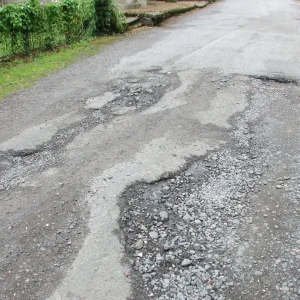The UK new car market recorded its sixth consecutive month of year-on-year growth in January, with a major increase in fleet registrations continuing to be a factor.
Figures from the Society of Motor Manufacturers and Traders (SMMT) show that fleet registrations were up by 36.8% last month compared with January 2022, contributing to an overall market growth of 14.7%.
Business registrations – classed as to companies with fewer than 25 vehicles – also saw significant growth, by 45.6%, while private registrations were down by 4.3%.
These changes meant that fleet registrations accounted for 52.7% of the market last month, compared with 45.2% for private buyers and 2.1% for business.
The SMMT said the market picture reflected some easing of supply, and how shortages last year distorted market performance. The organisation previously noted manufacturers prioritising retail sales over fleets early in 2022.
In terms of fuel mix, battery EV registrations were up by 19.8% year-on-year in January, taking 13.1% of the overall market, while plug-in hybrids were up by just 0.7% for a 6.9% market share.
It was a big month for conventional hybrids, with sales of these up by 40.6% for a 14.4% market share.
Mild hybrid petrols were up by 15.7% to take 13.1% of sales, but mild hybrid diesels were down by 10.7% to take just 3.9% of the market.
Pure petrol sales saw a 14.6% year-on-year increase for a 44.7% market share, while pure diesels were down by 12.1% for a 4% share.
The SMMT said it would like to see the UK Government’s upcoming Budget help support the transition to EVs, including by reducing VAT applied to public charging, and reviewing plans to apply VED to zero-emission vehicles.
SMMT chief executive Mike Hawes said: “The automotive industry is already delivering growth that bucks the national trend and is poised, with the right framework, to accelerate the decarbonisation of the UK economy.
“The industry and market are in transition, but fragile due to a challenging economic outlook, rising living costs and consumer anxiety over new technology.
“We look to a Budget that will reaffirm the commitment to net zero and provide measures that drive green growth for the sector and the nation.”
The call for more EV support was echoed by Lloyds Banking Group transport managing director Nick Williams, who said: “After a record-breaking year for EV registrations, a similar trend looks set to continue in 2023, with more than 17,000 new vehicles entering the UK car parc in January.
“But to make an electric dream a reality for more drivers this year we need to see continued investment and incentives from policymakers. This includes rapidly expanding the nationwide rollout of charging points – which, at its current rate, is one of the biggest hurdles to widespread EV ownership.
“The increases we’re seeing in new EV registrations are promising, but our infrastructure must be able to support them – only then will the UK be able to truly deliver on its ambition to be a global leader in the electrification of transport.”
Also backing the idea of more EV support, Novuna Vehicle Solutions managing director Jon Lawes said: “As registrations continue to bounce back at the start of 2023 in response to a gradual easing of supply chain shortages, there is cautious optimism within the industry for a sustained upturn over the coming months.
“However, maintaining this momentum relies heavily on increased government-led intervention to prioritise an exponential growth in the rollout of public chargepoints, to match the demand for EVs, and clarity for the industry, on its commitment to introduce a ZEV mandate.
“Without this, the government’s ambition to realise an EV revolution by 2030 frankly looks implausible.”





